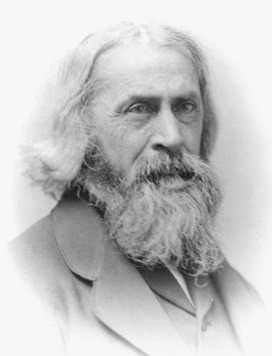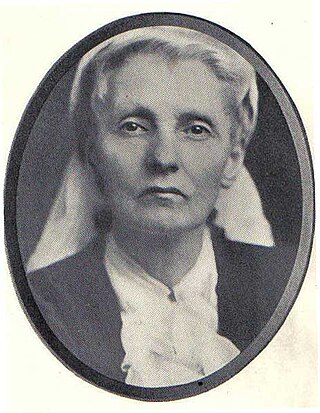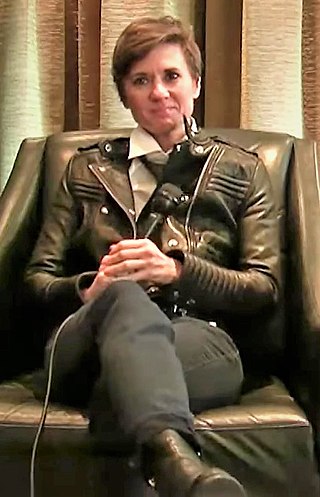Related Research Articles

Charles Sanders Peirce was an American scientist, mathematician, logician, and philosopher who is sometimes known as "the father of pragmatism". According to philosopher Paul Weiss, Peirce was "the most original and versatile of America's philosophers and America's greatest logician". Bertrand Russell wrote "he was one of the most original minds of the later nineteenth century and certainly the greatest American thinker ever".
Semiotics is the systematic study of sign processes and the communication of meaning. In semiotics, a sign is defined as anything that communicates intentional and unintentional meaning or feelings to the sign's interpreter.

Pragmatism is a philosophical tradition that views language and thought as tools for prediction, problem solving, and action, rather than describing, representing, or mirroring reality. Pragmatists contend that most philosophical topics—such as the nature of knowledge, language, concepts, meaning, belief, and science—are best viewed in terms of their practical uses and successes.
Charles William Morris was an American philosopher and semiotician.

The Swinburne University of Technology is a public research university in Melbourne, Australia. It is the modern descendant of the Eastern Suburbs Technical College established in 1908, renamed Swinburne Technical College in 1913 after its co-founders George and Ethel Swinburne. It has three campuses in metropolitan Melbourne: Hawthorn, where its main campus is located; Wantirna; and Croydon, as well the Swinburne University of Technology Sarawak Campus in the East Malaysian state of Sarawak. It also offers courses online and through its partnered institutions in Australia and overseas.

"Pragmaticism" is a term used by Charles Sanders Peirce for his pragmatic philosophy starting in 1905, in order to distance himself and it from pragmatism, the original name, which had been used in a manner he did not approve of in the "literary journals". Peirce in 1905 announced his coinage "pragmaticism", saying that it was "ugly enough to be safe from kidnappers". Today, outside of philosophy, "pragmatism" is often taken to refer to a compromise of aims or principles, even a ruthless search for mercenary advantage. Peirce gave other or more specific reasons for the distinction in a surviving draft letter that year and in later writings. Peirce's pragmatism, that is, pragmaticism, differed in Peirce's view from other pragmatisms by its commitments to the spirit of strict logic, the immutability of truth, the reality of infinity, and the difference between (1) actively willing to control thought, to doubt, to weigh reasons, and (2) willing not to exert the will, willing to believe. In his view his pragmatism is, strictly speaking, not itself a whole philosophy, but instead a general method for the clarification of ideas. He first publicly formulated his pragmatism as an aspect of scientific logic along with principles of statistics and modes of inference in his "Illustrations of the Logic of Science" series of articles in 1877-8.
Susan Haack is a distinguished professor in the humanities, Cooper Senior Scholar in Arts and Sciences, professor of philosophy, and professor of law at the University of Miami in Coral Gables, Florida.

Benjamin Peirce was an American mathematician who taught at Harvard University for approximately 50 years. He made contributions to celestial mechanics, statistics, number theory, algebra, and the philosophy of mathematics.

Objective idealism is a philosophical theory that affirms the ideal and spiritual nature of the world and conceives of the idea of which the world is made as the objective and rational form in reality rather than as subjective content of the mind or mental representation. Objective idealism thus differs both from materialism, which holds that the external world is independent of cognizing minds and that mental processes and ideas are by-products of physical events, and from subjective idealism, which conceives of reality as totally dependent on the consciousness of the subject and therefore relative to the subject itself.

Charles Elroy Townsend was an American lawyer who served as both a U.S. Representative and U.S. Senator from the state of Michigan. He served in the United States Congress from 1903 to 1923.

Victoria, Lady Welby, more correctly Lady Welby-Gregory, was a self-educated British philosopher of language, musician and watercolourist.

Kimberly Ane Peirce is an American filmmaker, best known for her debut feature film, Boys Don't Cry (1999), which won Hilary Swank her first Academy Award for Best Actress. Peirce's second feature, Stop-Loss, was released by Paramount Pictures in 2008. Her third film Carrie was released on October 18, 2013. In addition to directing and writing, she is a governor of the Academy of Motion Pictures Arts and Sciences and a National Board member of the Directors Guild of America.
Roberta "Bobbie" Kevelson was an American academic and semiotician. She was an acknowledged authority on the pragmatism theories of Charles Sanders Peirce.

Allan Marquand was an art historian at Princeton University and a curator of the Princeton University Art Museum. Marquand is notable as one of the foremost art historians and critics of his time, and helped to popularize and establish the field in elite college campuses. Along with his contemporary, Harvard's Charles Eliot Norton, Marquand was the first academic to bring the serious, academic study of art history into American collegiate curricula.

Cassius Jackson Keyser was an American mathematician of pronounced philosophical inclinations.

This Charles Sanders Peirce bibliography consolidates numerous references to the writings of Charles Sanders Peirce, including letters, manuscripts, publications, and Nachlass. For an extensive chronological list of Peirce's works, see the Chronologische Übersicht on the Schriften (Writings) page for Charles Sanders Peirce.

On May 14, 1867, the 27–year-old Charles Sanders Peirce, who eventually founded pragmatism, presented a paper entitled "On a New List of Categories" to the American Academy of Arts and Sciences. Among other things, this paper outlined a theory of predication involving three universal categories that Peirce continued to apply in philosophy and elsewhere for the rest of his life. The categories demonstrate and concentrate the pattern seen in "How to Make Our Ideas Clear", and other three-way distinctions in Peirce's work.
2008 in philosophy
2013 in philosophy

Carolyn Eisele was an American mathematician and historian of mathematics known as an expert on the works of Charles Sanders Peirce.
References
- ↑ "The Charles S. Peirce International Centennial Congress 2014". The Charles S. Peirce Foundation. Retrieved 19 February 2013.
- ↑ Purdue University [ dead link ]